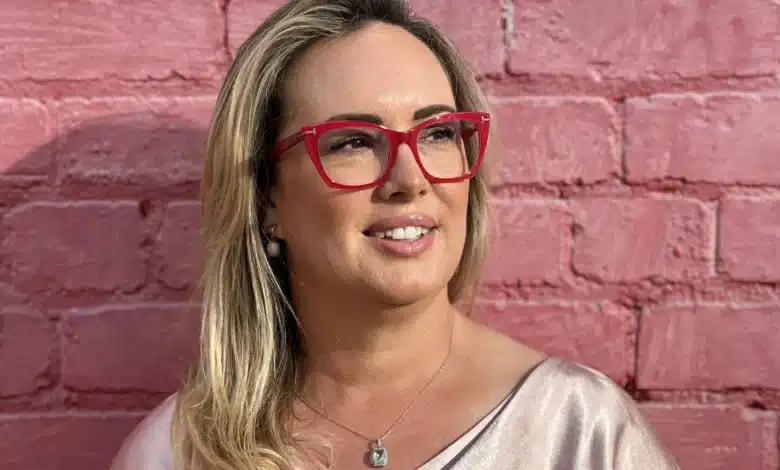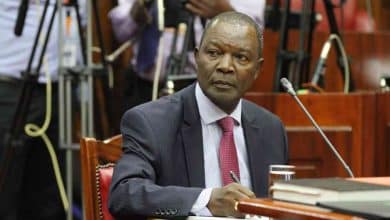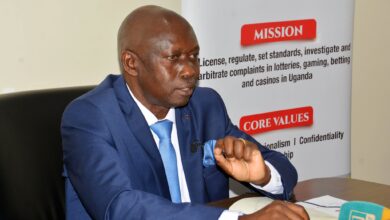Exclusive – Traversing the Evolving iGaming Landscape: Insights from a Recruitment Pioneer

In this exclusive interview, Lois Bright, Co-Founder of Initiate International, shares her journey and deep insights into the evolving iGaming recruitment industry across Africa. With over a decade of experience, Lois has played a pivotal role in building successful brands within the iGaming and FinTech sectors. Lois Bright iGaming Recruitment
From recruitment trends to the importance of personal branding and the challenges faced by aspiring professionals, Lois offers invaluable advice and a forward-looking perspective on the growth and potential of the industry in Africa. Whether you’re a seasoned industry professional or new to the field, Lois’s insights provide a wealth of knowledge on navigating and succeeding in this dynamic space.
IGA: So, can you tell us about yourself?
Lois: I’ve built the Initiate International brands within the iGaming and FinTech space across Africa since 2012. And last year, in 2023, we sold part of our business to the Conexus Group, and now we are part of a larger organisation. So, we have other parts to our business other than just recruitment.
IGA: What are some of the key trends and developments you have seen in the recruitment industry, especially concerning the kind of employees employers are interested in, especially in the gaming industry?
Lois: I think it’s evolved over time. Of course, the industry has grown in the time that I’ve been involved in it. It’s a difficult question to answer because it’s across the board. In matters of development in the recruitment industry, we do everything from C-level appointments, I think we’ve got three to four retained searches at the moment, and right down to call centre agents across the continent.
I wouldn’t say that there’s one particular skill, but I would say that what we do find is that, the majority of clients who come to us, want candidates with previous experience in gaming. As we know, because the market is growing so quickly, there is a bit of a supply and demand situation at the moment. So, we are trying to drive employers to recognise that they may have to bring people from parallel industries and upskill them into the gaming industry, which is a bit of a push for them.
IGA: So where does this put those who don’t have the experience and how can they penetrate the industry?
Lois: I think that employers should be taking chances on people who are coming from parallel industries, like E-Commerce or Fintech for example. So, I think from that perspective, we need to be looking outside the industry to try and bring in new blood. In parallel to that, I think that businesses should be engaging with businesses that can upskill those people when it comes to training across the board, so they can then upskill either their existing staff or staff they want to bring into the industry or their businesses.
IGA: You’ve been mostly involved in recruitment, and you’ve managed to help quite several individuals seeking opportunities in the industry. Why is it important for those seeking job opportunities to understand their job description properly before even applying for the jobs?
Lois: Yeah, actually this is a funny story. So, I just had this conversation with a well-known CEO in the industry who said he doesn’t like putting any of his adverts out, for any of his jobs because 99.9% of the people who apply are irrelevant to the role. Often, we will put C-level positions out and you will get a Pick n Pay cashier applying for the position.
So, I think that the job descriptions are important once you actually engage with the candidate. I don’t necessarily think that even if you put the perfect job description online in an advert, you are going to get the best people applying for the position.
IGA: How do you address the issue of receiving so many applications from unqualified candidates or applicants who may not even look at the job description before applying?
Lois: Well, I’m not sure that we can necessarily address the issue. I guess, again, going back to this conversation I had, I think that there are more businesses that don’t advertise their positions, which of course is also a quandary, because how do people know that they’re looking? So I guess the thing is engaging with a recruiter. We can sift through applications and make sure you get the best applicants for the role.
So, I think engaging with a recruiter is saving a lot of time and effort on the part of the business. Also, it comes down to employer branding because if you’re not advertising anything it might look like your business isn’t growing. If you’re not advertising, you might see that you’re not making it fair for people to apply, but by engaging with a recruiter, we can support the employer brand.
There’s no silver bullet to end that kind of situation. I think as the internet grows, as it has done over the last 20 years, you are going to get lots more people applying online who don’t read anything. They might just read the job title and think, that’s exactly the job that I want, but they’ve got no qualifications or experience for it. And the problem is then when someone’s sifting through, they might go through the first ten applications and think, "These are rubbish, I’m not going to carry on". But there could be a gem right after there that they don’t find. So as recruiters, obviously a lot of our back office is sifting through applications and either rejecting people because they have no skills or experience in the gaming industry, or looking into their experience in parallel industries, as I said earlier.
IGA: You have highlighted the importance of employers engaging recruiters because some companies believe that engaging recruiters is a waste of their money, they can do it all on their own and then after recruiting, they cannot retain them for one year or even six months. So, what do you have to say about that?
Lois: Yeah, that’s also a very interesting topic. I think when it comes to engaging with a recruiter, of course, initially a business might just think about the cost, but they haven’t necessarily thought about what the cost saving is by using a recruiter, which I’ve just talked about with regards to applications.
We also know who’s who, obviously because we’re so well connected in the industry, which I think is also important because there will be recruits that aren’t good for business. They might not be right from a cultural perspective, or they are well-known for job hopping for example, so we can do all the vetting and checks before you hire the person.
So, you’ve got a trusted partner that can manage the process for you and ensure you get the best person.
IGA: How important is a CV or a resume for job applicants and what should they know before applying for that advertised dream job to increase their chances of getting hired?
Lois: So, my piece of advice here would be to have two versions of your CV. One version is maybe a resume, let’s call it a high level, and the other one, we call it a skeleton CV. You should have a long-form version of your CV, which should have everything in there, but it can be adapted to each job. It could be that you do a generic CV and you’ve been a marketing manager, but in actual fact, the majority of what you’ve been doing is acquisition marketing, or retention or affiliate, but you haven’t put that on your skeleton CV.
When you then go and apply for that retention marketing manager, you would edit your skeleton CV to make sure that it highlights all your experience in one area. What you do find is that often candidates don’;t help themselves because maybe their CV is too short, too long, or maybe there’s too much of one thing and not enough of the other. Unfortunately, the first 10 seconds count when you’re looking at someone’s CV. You’d be surprised how many people end up not getting the job because the opening line or opening part of their CV doesn’t immediately stand out that they were good for the job. So, they’ll miss out on an opportunity and then they’ll wonder why, but it’s their CV. Having a really good quality CV and spending time on putting it together is integral to being able to get yourself the dream job.
IGA: If an applicant chooses to have more than one version of their CV, for example, they believe that they have experience in marketing, they have experience in operations, and probably they have experience in another field. Would it be a good idea to have them separately or would you recommend having one resume and ensure that they include all their details?
Lois: No, do you know what, this is the thing, that’s why I say you have a skeleton CV because then there will be times when you feel like you are not able to apply for something because your CV doesn’t demonstrate the skills you have. So, it may well be that you are someone who did, let’s say, marketing again. You might have very good retention marketing skills, but you might also have been an affiliate manager for example.
Well, if you’re going to apply for an affiliate role, you don’t want to be putting your retention experience on the front of your CV. Yes, sure, you want to say, look, I’ve got other experience, not just affiliate marketing, but the reality is those first ten seconds count. Look, we are not saying you should fabricate anything in your CV, but we’re saying you’re like a dating profile. You’re not going to put everything onto your dating profile. You’re going to put your highlights and the best parts of what you are and who you are. And the same applies to a CV. You’re trying to highlight the things that are going to be important to that employer.
IGA: As someone with years of experience in the gaming industry, what advice would you give to aspiring professionals looking to make a career in this field, particularly in Africa?
Lois: So, I think the thing is, we need to make sure that people aren’t job hopping. I have, again, had this conversation with a client. There are a lot of people in the market who have been lured away from businesses based on maybe a few hundred dollars more at the next company and then every six months they do the same thing, they job hop. I think the main thing is that to get credibility in the market you also must have your feet under the table for a certain amount of time.
So, whilst I understand that from a generational perspective, we’re not expecting people to go into businesses and stay there for 20 years, but I do think that if people want to be credible and build a good career for themselves, they also need to think about their career from a strategic perspective. If you want to get that promotion, you need to stay at a company for a certain amount of time, and then you’ll be able to go up the career ladder. You wouldn’t do it if you just jumped up from one job to the next because that only gets you a higher salary. It doesn’t get you more experience and it does not get you credibility in the market. I think when we’re looking into Africa, given the fact that we’re going through a huge growth period right now, applicants should make that decision, not to take that move lightly, of moving from one company to the next. Again, consult with recruiters, consult with people in the industry.
Mentorship is also important. You need someone that’s going to give you good advice, that say, “I’m not advocating you moving to that company because I don’t think it’s going to give you what you’re looking for.” And, thinking about it retrospectively, what you’re looking for, because in the end, it isn’t the $200 extra or the $1000 extra a month, usually, there’s something else missing. So, it’s about thinking about your career more strategically.
IGA: Let’s assume a scenario where you are the applicant. This particular question proves difficult for most people to answer during interviews. So, help us see how we can help them. “What would be your salary expectation for this job?”
Lois: Oh, that’s an interesting one. I would probably say, “What I’m looking for at the moment is X amount.” You’ve also got to think about the fact that they may well ask for your pay slips.
They might ask what you are currently earning. Now, this isn’t an exercise of someone trying to get the cheapest skill, but this is about fairness for both sides. Is it fair for what you’re worth? And is it fair for what the business can afford? So, I think that often what happens is people go into these and they maybe go above what they should be earning, and they end up wondering why they didn’t get the job. It’s often because they’ve ended up over-egging their salary expectations. After all, they think that’s what they want to do. But, okay, I’m going to keep saying this but it’s the truth, having a recruiter is important because we act as your broker.
Now obviously we have a vested interest in assisting you in time, I’m always of the approach, most of my team are the same, we are consulting with both the client and the candidate. So, we would be consulting with the client to say, that your salary banding is not quite right, you need to go higher. And we might say to the candidate, your market-related salary is higher than what you’re worth in the market right now. We would suggest that you look at ‘x’.
We always try to circumnavigate the possibility that the client won’t hire them because they went way above what the salary expectation is. It can happen when the people go lower, of course. Again, that’s why working with the recruiters is important because we can help leverage the best deal for both parties. So that everyone walks away feeling happy. Lois Bright iGaming Recruitment
The other thing I would suggest is that when you move from one company to the next, you are only going to achieve a 10 to 20% increase on what you’re currently on. So have that in mind in terms of when you’re thinking about your figure. You shouldn’t just be thinking, oh, I’m worth X amount in the market, and then that happens to be 50% more than you’re earning right now. We always say that if you’re moving for money, you’re probably not moving for the right reasons. Lois Bright iGaming Recruitment
IGA: You’ve attended events like SiGMA and the Big Africa Summit 2024. What were some of the highlights of these events, and how do you believe such events contribute to the growth and development of the gaming industry in Africa?
Lois: I love this question. I think when it comes to Africa, of course, this is not exclusively Africa, but when it comes to Africa, we are a people’s people. So, connecting people face-to-face is always the best way to start a business, to be doing business or to continue business. And the thing is, people often perceive Africa like it’s a country but there are 54 countries. So, for people to come together in one location is quite a big thing. Lois Bright iGaming Recruitment
And that allows us to meet with people face-to-face, to connect with people, new clients, old clients, people you’ve met in the industry. You get to pitch ideas, see what businesses are doing and see the synergy between you and another business. That’s one part of it. The other part, of course, is that you can contribute to the growth of the market through activities such as sitting on panels, all kinds of events, being a role model to the community and bringing awareness about Africa. I think that it has long been the continent that is the sleeping giant. I think that’s true about Africa. So, I think that for fostering the growth of the market, these events are important, for showcasing what we do and what we can do to not just other fellow Africans, but also people outside of the continent that want to come in and do business here.
IGA: Congratulations for starting the Women in Gaming Initiative. It has been a massive success so far. Could you shed some light on what the main goal for the initiative is and what are some of the ambitions you have for it in the coming years?
Lois: For the last few years, whenever I’ve gone to conferences, and of course, you end up gravitating towards other women in the industry, we’ve often said, why don’t we have a women’s event? Why don’t we have something going on? Everywhere else has this thing going on. So, we’ve been talking about it for a few years and at the start of this year I just decided, what are my goals? And I thought one of them was to start bringing about more positive change within the industry and fostering sisterhood. What I’m looking for is to build a community that is more than just, “we’re talking about gaming”, we’re going to be talking about being women in business, being mothers in business, being women in countries that are still not progressive when it comes to women’s rights for example. So, it’s about diversity and inclusion.
I suppose the short-term goal is to have more events and probably a webinar series, maybe even a podcast, to bring about change and to bring about opportunities for other women, but also to foster mentorship. There’s a hell of a lot of amazing women in gaming in Africa because, contrary to popular belief, the African industry is an old industry. There are a lot of amazing people, new entrants into the market, but also people who have been in the industry for a long time, who can offer mentorship to other people, bringing about change in the industry and bringing more women into the industry. Lois Bright iGaming Recruitment
It’s such an inclusive industry anyway for women. I feel like it’s such a little playing field when it comes to everyone joining the gaming industry because it’s relatively new. I think from that perspective, the biggest thing is really to start building an international community. Wouldn’t it be amazing if there were other women in gaming initiatives worldwide who started looking at Africa and saying, we need to do more of what they’re doing? So, I’d like to be groundbreaking, I’d like to do things that are registering real impact and change. So, it would be great if we could start bringing it to the international stage. Lois Bright iGaming Recruitment
IGA: What is the importance of social media platforms, especially LinkedIn, which is mostly used by those seeking opportunities in the sector, and how best they can build a profile that attracts attention from recruiters?
Lois: Personal branding is just as important as employee or employer branding. Having a personal brand, I sat on a panel at Sigma Dubai, the panel was about influence in marketing. And of course, when people think about influencers, they think about people, you know, vlogging diet pills on Instagram, but, you can be a LinkedIn influencer, and you can start building up your repertoire of who you are and what you do. I think a good example of this would be someone like Gali Hartuv. Lois Bright iGaming Recruitment
He has become known for his VIP side of things, and he’s built up a very niche area of gaming, and people know him for it. And so, I think you’ve got to focus on what you’re good at and what your speciality is, then you start building your brand around that online. Engaging with posts, other businesses, and other influencers in the market, and of course, going to industry events, commenting on things, I think just being engaging on the platform and seeing it as an extension of who you are. Often now, we’re in an industry where we all work online. You don’t always get to meet people face-to-face. You don’t always get to pitch yourself face-to-face. So, the online presence can be a big extension of who you are as a human in real life. Lois Bright iGaming Recruitment























